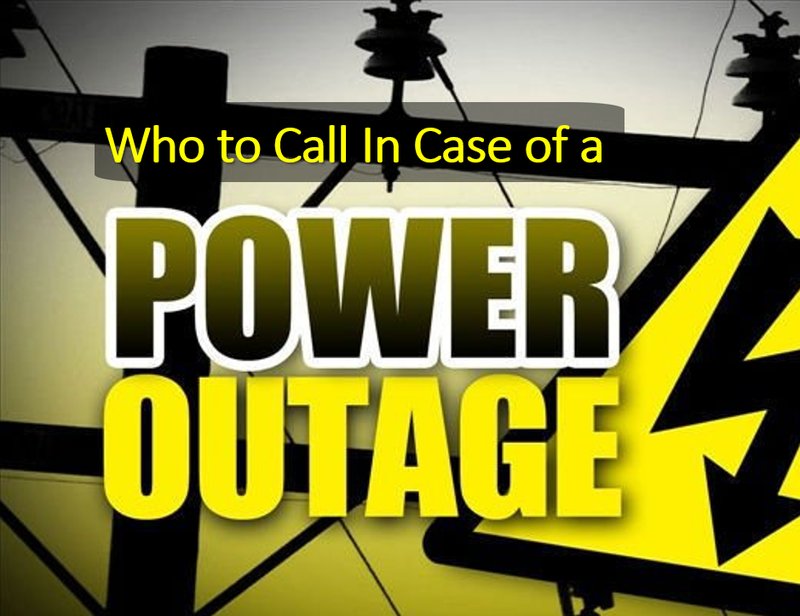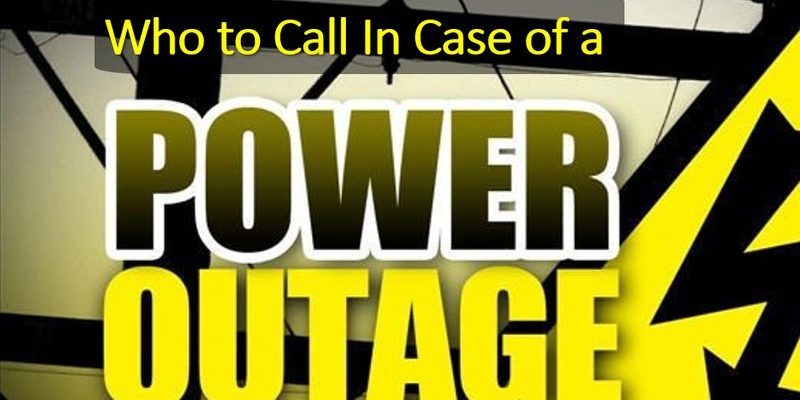
Here’s the thing—knowing who to call for utility outages in 10002 is less about memorizing random phone numbers, and more about having a go-to action plan. Think of it like carrying a spare key: you might not need it often, but when you do, you’ll thank yourself for being prepared. I’ve put all the essential info here: which companies serve your area, how to report different kinds of outages, and what to do if you can’t get through. Let’s walk through it step by step, no utility jargon required.
Understanding Utility Outages in 10002
First off, not all outages are created equal. In zip code 10002—the heart of Manhattan’s Lower East Side—you’re usually dealing with a few main types: electricity, natural gas, water, and occasionally heat or internet. Each one comes with its own troubleshooting dance. Sometimes it’s a city-wide blackout; other times, a burst pipe in your building knocks out water for just your floor.
It helps to know that in New York City, utilities are a patchwork of public and private companies. For example, Con Edison keeps your lights on, while National Grid might handle your gas. If you live in a big apartment building, your super or building manager is often your first call, since the issue could be internal. That’s why your action plan has to flex a bit—sometimes you call the company directly, sometimes the building handles it.
Here’s the big tip: Don’t assume your neighbors have already called, even if you think “everyone must know.” Reporting is often what gets crews moving faster. And even if you’re a tenant, it’s better to double-check than sit in the dark waiting for someone else to act.
Reporting Electricity Outages: Con Edison
Let’s start with the obvious: when the power is out, it’s usually Con Edison in control for 10002. ConEd handles all electricity (and most steam heat) for Manhattan. Their system is built for issues big and small, from block-wide blackouts to a single dead outlet.
Here’s how to report an outage to Con Edison:
- Call 1-800-75-CONED (1-800-752-6633)—their dedicated outage line. Save it in your phone now, honestly.
- Use their website or outage map (coned.com)—if you still have mobile data.
- Text “OUT” to 688243 if your number is registered with ConEd.
If you’re in an elevator when the outage hits, use the emergency call button—they’ll alert the building super and emergency crews. The ConEd outage map is super helpful for seeing if the problem’s widespread or just in your building. Don’t be afraid to ask your neighbors if they’ve reported it, too. Sometimes it takes a few reports to get their attention.
If you’re in public housing (like NYCHA), you’ll want to contact your development’s management as well—they coordinate with ConEd. And if you have life-support medical equipment, let Con Ed know in advance—they’ll flag your address as high-priority during blackouts.
Natural Gas Outages and Emergencies: National Grid & Con Edison
Gas outages are a totally different beast. If you ever smell gas (that rotten-eggs smell), don’t hesitate—leave the building and call 911 right away. Gas leaks are emergencies, and New York City takes them seriously.
For regular gas outages in zip code 10002:
- Con Edison handles most residential gas service in lower Manhattan. Their emergency line is 1-800-75-CONED.
- If you’re in a building with National Grid, their emergency line is 1-718-643-4050.
Don’t try to reset or “fix” gas issues yourself—no syncing, no pairing, no turning it off and on again. If your stove and hot water both go out, check with your neighbors to see if it’s a building-wide issue. For most big apartment buildings, the management company coordinates with utility providers, so call your super as well.
Here’s where it gets tricky: some buildings have their own internal gas systems, which can lead to delays if the outage is just on your floor. Always call the utility first, then your landlord or super, so you have both sides covered.
Water Outages: NYC Department of Environmental Protection
If you turn on the tap and nothing comes out, or the water looks brown or cloudy, it’s time to call the city. NYC Department of Environmental Protection (DEP) manages water for all of 10002. Sometimes outages follow a nearby water main break, especially during winter or after construction.
Here’s what to do:
- First, check if it’s just your apartment or the whole building. Ask a neighbor or the building super.
- If your building manager isn’t aware, call 311 (the city’s help line) or file a water outage report online at nyc.gov/dep.
- If there’s obvious flooding on your street or a major leak, call DEP’s 24-hour hotline: 718-595-7000.
DEP sometimes posts neighborhood alerts for planned repairs. If you see brown water after service returns, run the cold tap for a few minutes to clear the pipes. No need to panic—this is super common after a reset, and the water is usually safe once it runs clear.
If you’ve recently moved to a new building in 10002, it’s not a bad idea to ask your super how to reach DEP or how past outages have been handled. Some buildings have older plumbing, which can mean more frequent interruptions.
Heat and Hot Water: Who Fixes What?
Here’s where things can get confusing. In New York City, landlords are required by law to provide heat and hot water. If you lose either one, it’s typically a building issue—not a utility company problem—unless there’s a major outage.
Here’s your action plan:
- First, call your building super or management office. They’re usually responsible for maintaining the boiler or water heaters.
- If you can’t reach the building manager, or the issue isn’t fixed within a reasonable time, call 311 to file a Housing Maintenance Code complaint.
- If you suspect the problem is due to a larger utility outage (like a Con Edison steam issue), ask your super if they’ve confirmed with the provider.
Honestly, most heat and hot water outages in 10002 are building-level problems—broken boilers, needed reset, or old plumbing. Only in rare cases is it the utility’s fault. If you’re in a rent-stabilized building or NYCHA housing, document any outages with dates and photos; this helps if you need to escalate your complaint.
And if you’re wondering—portable electric heaters might seem like the answer, but most big NYC apartments prohibit them for safety reasons. Always check your lease first.
Internet and Cable Outages: Spectrum, Verizon, RCN, and More
Losing Wi-Fi in 10002 isn’t just an inconvenience—it’s basically a modern emergency, especially if you’re working from home. The major providers around here are Spectrum, Verizon Fios, and RCN/Astound. Each has a slightly different process for reporting and troubleshooting outages.
What to do if your internet goes out:
- Check your modem and router to make sure it’s not just a local reset or sync issue—try unplugging for 30 seconds, then rebooting.
- If nothing changes, visit your provider’s outage page (if cell data works) to see if there’s a reported problem in your zip code.
- Call your provider’s customer service number:
- Spectrum: 1-855-707-7328
- Verizon Fios: 1-800-837-4966
- RCN/Astound: 1-800-746-4726
You might be wondering if it’s faster to tweet at customer support—sometimes, yes! They tend to respond quickly on social media. But the phone lines are open 24/7 if you’d rather talk to a real human. If your whole building’s down, ask your neighbors if they’ve called, too.
Here’s a little trick: Most providers offer outage credits if your service goes down for a long stretch. Don’t be shy to ask! A quick call or chat message can often get you a small bill adjustment.
When To Call 311 or Emergency Services
Not every outage is a 911-level emergency, but some definitely are. In zip code 10002, 311 is your all-purpose helpline for non-emergencies—think noisy construction, water issues, building complaints, or heat/hot water loss.
Call 911 if you:
- Smell gas or suspect a carbon monoxide leak
- See downed power lines sparking or creating a fire risk
- Face a medical emergency caused by the outage (like power loss for critical health equipment)
For just about everything else, 311 is your best bet. They’ll route your issue to the right city department and keep a record of your complaint. Honestly, the squeaky wheel gets the grease in NYC—multiple reports can speed up repairs.
Pro tip: If you’re submitting a report, write down your confirmation number. If the issue drags on, this will help you follow up or escalate.
Keeping Track of Outages and Restorations
It’s always good to know what’s happening during a utility outage. Most providers now offer live maps and email or text alerts, which is a bit like watching storm clouds move on a weather app—you can see when things might return to normal.
Here’s how to stay updated:
- Con Edison’s outage map provides real-time updates for power issues.
- DEP’s website posts alerts and restoration times for water outages.
- Internet providers often have a dashboard for checking status and estimated fix times.
If you’re into tech, you can even sign up for push notifications or download official apps like ConEd’s or your Internet provider’s. Just don’t forget to charge your phone beforehand—once the power’s out, your battery is your lifeline.
In big storms or after major city events, restoration estimates might bounce around. If you need exact info (say, for work or medical reasons), don’t hesitate to call and ask directly. Providers do their best to keep customers updated, but sometimes it’s those who speak up who get help first.
What To Do If You Can’t Get Through
Honestly, sometimes lines are busy or you’re put on hold forever, especially during big city-wide outages. If you can’t get through to a utility company, don’t panic—there are backups:
- Try their online forms or live chat features.
- If it’s a building issue, see if your super or doorman has better luck with management contacts.
- Check your building’s email list or resident group chat for updates—someone might have news.
- Use 311 for city services, or neighborly word-of-mouth for updates on what’s happening.
In the worst-case scenario, you can always escalate by contacting local elected officials—they often post updates during major outages and can sometimes push for faster fixes.
In New York City, being prepared for utility outages is a bit like carrying an umbrella—most days you won’t need it, but when the skies open up, you’re glad you have it handy.
Closing Thoughts: Stay Prepared in Zip Code 10002
Life in 10002 is never boring, but utility outages add a layer of chaos that no one loves. The good news? If you know exactly who to call for utility outages in zip code 10002, you’re automatically ahead of the curve. Save those numbers, keep a flashlight and backup charger handy, and don’t be afraid to report issues early and often.
Empower yourself and your neighbors—when the lights go out or the water stops flowing, you’ll know who has the answers. Living in Manhattan means rolling with the punches, but a little preparation turns the next outage from a panic into a problem solved. Stay safe, stay connected, and remember: help is only a phone call (or text, or online report) away.
